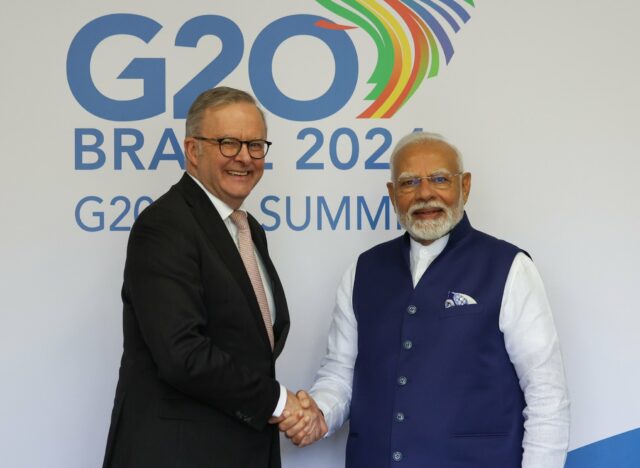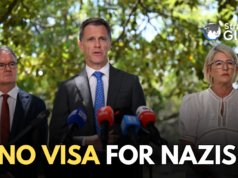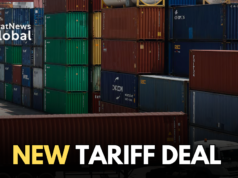
“Prime Minister Albanese has accepted our invitation for the Quad summit to be hosted by India next year.”
There was more as Prime Miinister Modi and his Australian counterpart Anthony Albanese had discussions on the sidelines of the G20 in Rio de Janeiro, Brazil.
“After ECTA (Economic Cooperatioin and Trade Agreement) came into force, in the last two years our bilateral trade saw a 40% increase. In defence, through joint exercises between young officers our relations have seen a new impetus,” Modi said.
Albanese noted “so much potential in the relationship between Australia and India. I am delighted to welcome the launch of the India Australia Renewable Energy Partnership. It will boost two way partnership in renewable energy projects like solar PV manufacturing, green hydrogen and green iron.”
A joint statement issued at the end of the talks noted progress in the critical minerals sector and cooperation in space. The two countries will work together on India’s Gaganyaan mission while an Australian satellite will be launched on board an Indian rocket sometime in 2026.
The Joint Declaration on Defence and Security Cooperation will be renewed next year with the focus on a “long term vision of defence and security collaboration”.
Modi and Albanese lauded the interoperability made possible by the Mutual Logistics Support Arrangement. A joint maritime security roadmap is being worked out and aircraft deployments from each others territory will continue in order to “build operational familiarity.”
Visits by defence industry delegations of each country will be encouraged and defence manufacturers can take part in expositions and exhibitions in the other country. Military industrial firms from India recently took part in exhibitions in Perth and Melbourne and the intention is to work for long term collaborations.
The joint statement lauded Australia’s MATES programme which will enable that country to get access to the professional talents of young Indian graduates in science technology and engineering.
Thirty eight years in journalism, widely travelled, history buff with a preference for Old Monk Rum. Current interest/focus spans China, Technology and Trade. Recent reads: Steven Colls Directorate S and Alexander Frater's Chasing the Monsoon. Netflix/Prime video junkie. Loves animal videos on Facebook. Reluctant tweeter.




